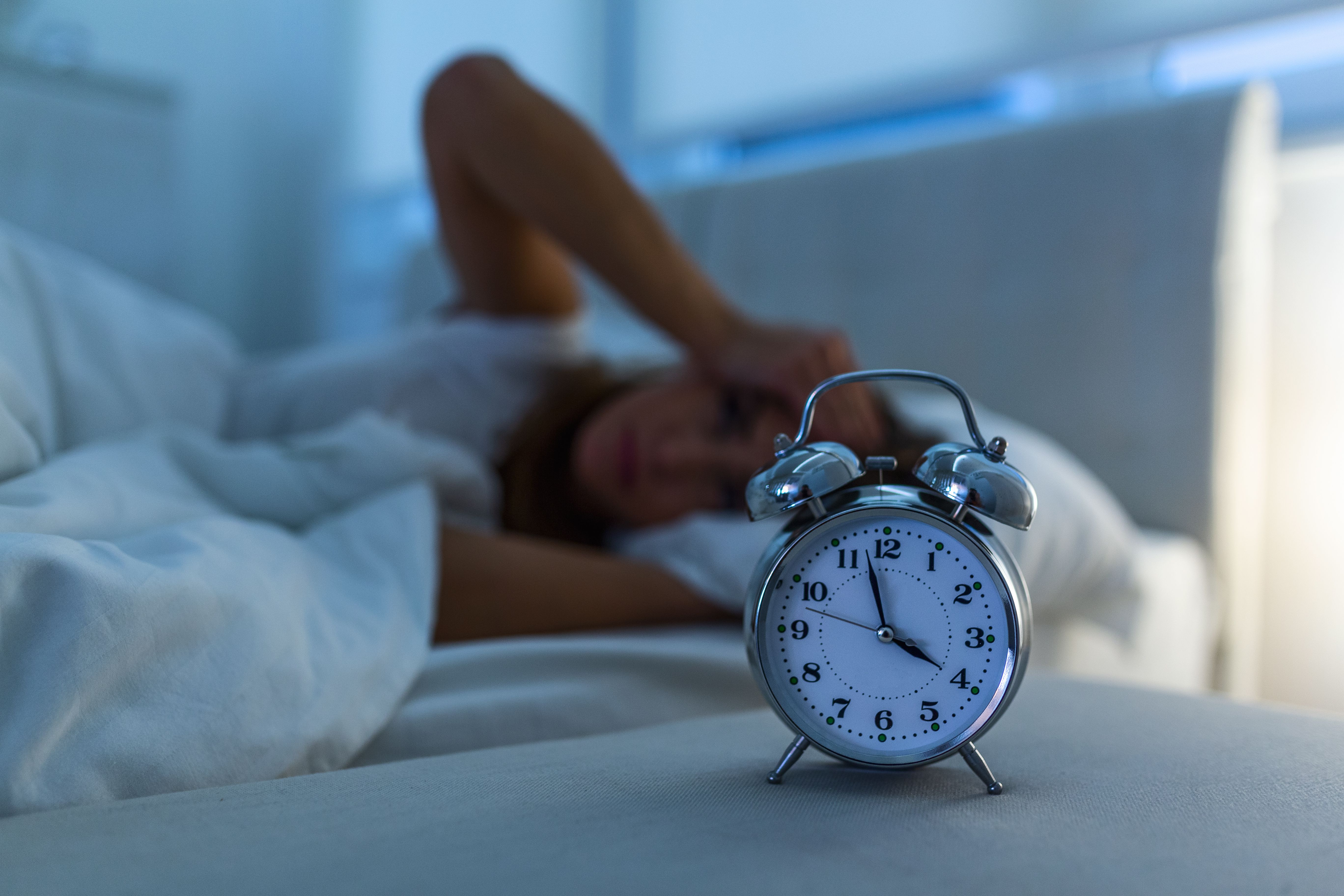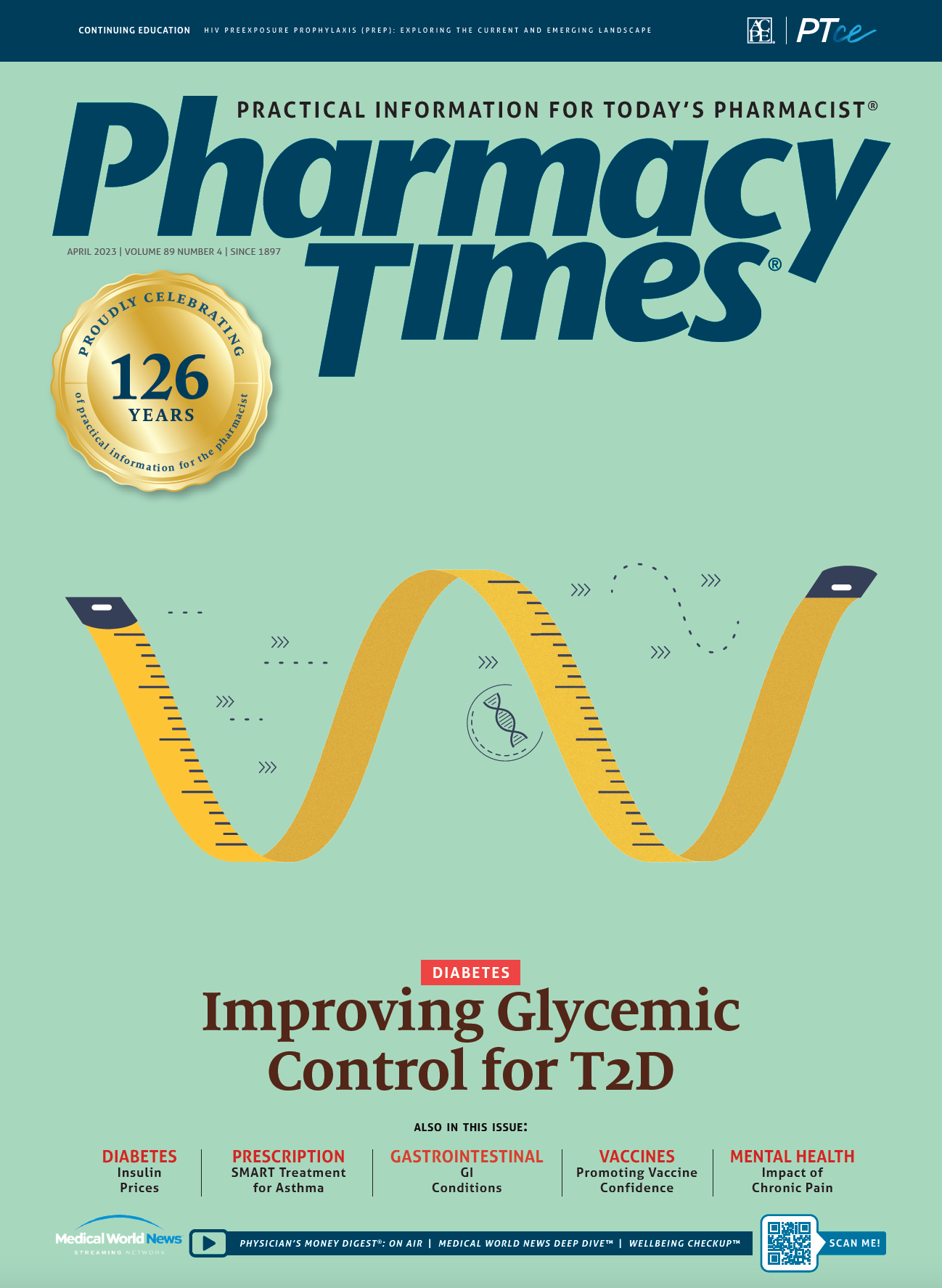Publication
Article
Pharmacy Times
Identify, Address Insomnia Causes to Prevent Health Complications
Author(s):
For chronic cases, encourage patients to seek medical care from their primary health care providers.
Pharmacists can be instrumental in helping patients select and properly use nonprescription sleep aids when appropriate and directing patients to seek further medical evaluation for chronic insomnia.
Woman with insomnia | Image credit: Graphicroyalty - stock.adobe.com

The importance of obtaining an ample amount of quality sleep is often taken for granted or underestimated until an individual experiences difficulty falling or staying asleep. Although everyone experiences sleep issues occasionally, many individuals in the United States experience insomnia regularly.
According to data from the 2020 National Health Interview Survey by the CDC’s National Center for Health Statistics, 14.5% of US adults had issues related to falling asleep every day or most days in the previous month.1
Additionally, women were more likely to report issues with falling asleep compared with men, with reported percentages of 17.1% and 11.7%, respectively.1 Study results have shown that many women experience sleep problems during menstruation, pregnancy, and menopause.2,3 Additionally, rates of insomnia surge as individuals age and are most often attributed to other medical conditions.2,3
The Sleep Foundation indicates that between 10% and 30% of adults have chronic insomnia, and between 30% and 48% of older adults experience insomnia.3
Some individuals experience insomnia because of anxiety, grief, and stress. Individuals who experience chronic insomnia should discuss this issue with their primary health care providers to avert long-term health complications. Insomnia is considered chronic if it transpires 3 or more times a week for 3 or more months.2
Insomnia contributes to anxiety, daytime sleepiness, depression, and irritability; increases the risk of motor vehicle and work-related accidents; and negatively affects academic and work productivity.4,5
Insomnia can also decrease cognitive function, causing difficulty concentrating and memory issues, delayed reflexes, and impaired decision-making, according to experts from the Cleveland Clinic.5
An expanding body of clinical evidence demonstrates the impact of the amount and quality of sleep on overall health. Results from several studies indicate that insomnia is associated with a decline in cognitive function and increased cardiovascular and metabolic risk factors.4,5
Many patients who struggle with insomnia initially try nonprescription sleep aids. Pharmacists can help patients properly select these agents, screen for possible drug-drug contraindications and interactions, and direct patients to seek further medical evaluation from their primary health care providers when self-treatment is inappropriate, especially in older patients and those with preexisting medical conditions.
Because of their drug expertise, pharmacists can identify medical conditions such as arthritis, heartburn, hyperthyroidism, and sleep apnea that may affect sleep quality, and pharmacological agents such as antidepressants, antihypertensives, and sympathomimetic amines commonly associated with insomnia, making clinical recommendations accordingly when appropriate.2 In general, the goals of treating insomnia include identifying and addressing causes when feasible and improving quality of sleep and daytime functioning.
Recent News and Clinical Studies
New research results presented at the American College of Cardiology’s Annual Scientific Session Together With the World Congress of Cardiology indicated that individuals with insomnia are 69% more likely to have a myocardial infarction (MI) over an average 9-year follow-up period compared with those without insomnia.6 Additionally, individuals who sleep 5 or fewer hours per night have the greatest risk of MI; those with both diabetes and insomnia are twice as likely to have an MI, and MIs occur more often in women with insomnia.6
Another recent study found significant associations between 3 measures of sleep disturbance and the risk of developing dementia over a 10-year period.7 The results showed that associate sleep-initiation insomnia, defined as trouble falling asleep within 30 minutes, and the use of sleep medication were linked with a greater risk of developing dementia.7 Over the course of the study, investigators also found that individuals who reported having sleep-maintenance insomnia, defined as trouble resuming sleep after waking, were less likely to develop dementia.7
The results of another recent study showed that less than 33% of adults in the United States obtain adequate sleep each night, and many are sleep-deprived.8 The authors also indicated that the long-term effect of sleep deprivation might include increased risk of cardiovascular disease, diabetes, and weight gain.8
Results from a 2022 American Academy of Sleep survey of 2010 adults showed that 12% of Americans use OTC sleep aids and 27% use melatonin.9
Conclusion
During counseling, pharmacists should remind patients that nonprescription sleep aids are indicated only for short-term use and to consult their primary health care providers if their insomnia worsens or does not improve after 7 to 10 days.2 Also advise patients to adhere to the recommended dosage and duration of use, be aware of precautions and warnings, and stay informed about potential drug interactions and adverse effects, such as blurred vision, constipation, dry mouth, and morning grogginess.2 When practical, pharmacists can also provide patients with information about recommended sleep hygiene measures that may improve sleep, such as2:
- Avoiding daytime napping or limiting naps to 20 to 30 minutes
- Avoiding eating heavy meals and using alcohol, caffeine, and nicotine before bedtime
- Creating a relaxing sleeping environment with a comfortable temperature and reducing light and noise
- Discontinuing the use of electronic devices before bedtime
- Establishing a regular bedtime routine
Educating patients about the significance of addressing insomnia is critical to preventing or reducing long-term complications. Recommendations from pharmacists allow patients to make informed decisions about the best measures for treating insomnia and hopefully getting a good night’s sleep. Pharmacists should always encourage patients experiencing chronic insomnia to seek medical care from their primary health care providers to identify possible causes and for additional treatment tailored to individual needs.
About the Author
Yvette C. Terrie, BSPharm, RPh, is a consulting pharmacist and medical writer in Haymarket, Virginia.
References
1. Adjaye-Gbewonyo D, Ng AE, Black LI. Sleep difficulties in adults: United States, 2020. NCHS Data Brief. 2022;(436):1-8.
2. Eisenhower C. Insomnia, drowsiness, and fatigue. In: Krinsky DL, Ferreri SP, Hemstreet BA, Hume AL, Newton GD, Rollins CJ, Tietze KJ, eds. Handbook of Nonprescription Drugs: An Interactive Approach to Self-Care. American Pharmacists Association; 2020.
3. Sleep statistics. Sleep Foundation. Updated March 28, 2023. Accessed March 29, 2023. https://www.sleepfoundation.org/how-sleep-works/sleep-facts-statistics
4. Kaur H, Spurling BC, Bollu PC. Chronic Insomnia. In: StatPearls [Internet]. StatPearls Publishing; 2022. Accessed March 29, 2023. https://www.ncbi.nlm.nih.gov/books/NBK526136/
5. Insomnia. Cleveland Clinic. Updated February 13, 2023. Accessed March 9, 2023. https://my.clevelandclinic.org/health/diseases/12119-insomnia
6. Dean YE, Shebl MA, Rouzan SS, et al. Association between insomnia and the incidence of myocardial infarction: a systematic review and meta-analysis. Clin Cardiol. Published online February 25, 2023. doi:10.1002/clc.23984
7. Wong R, Lovier MA. Sleep disturbances and dementia risk in older adults: findings from 10 years of national U.S. prospective data. Am J Prev Med. Published online January 25, 2023. doi:10.1016/j.amepre.2023.01.008
8. Robbins R, Quan SF, Buysse D, et al. A nationally representative survey assessing restorative sleep in US adults. Front Sleep. 2022;1:935228. doi:10.3389/frsle.2022.935228
9. American Academy of Sleep Medicine sleep prioritization survey 2022: sleep aid use. American Academy of Sleep Medicine. Accessed March 3, 2023. https://aasm.org/wp-content/uploads/2022/06/sleep-prioritization-survey-sleep-aids.pdf

Newsletter
Stay informed on drug updates, treatment guidelines, and pharmacy practice trends—subscribe to Pharmacy Times for weekly clinical insights.





